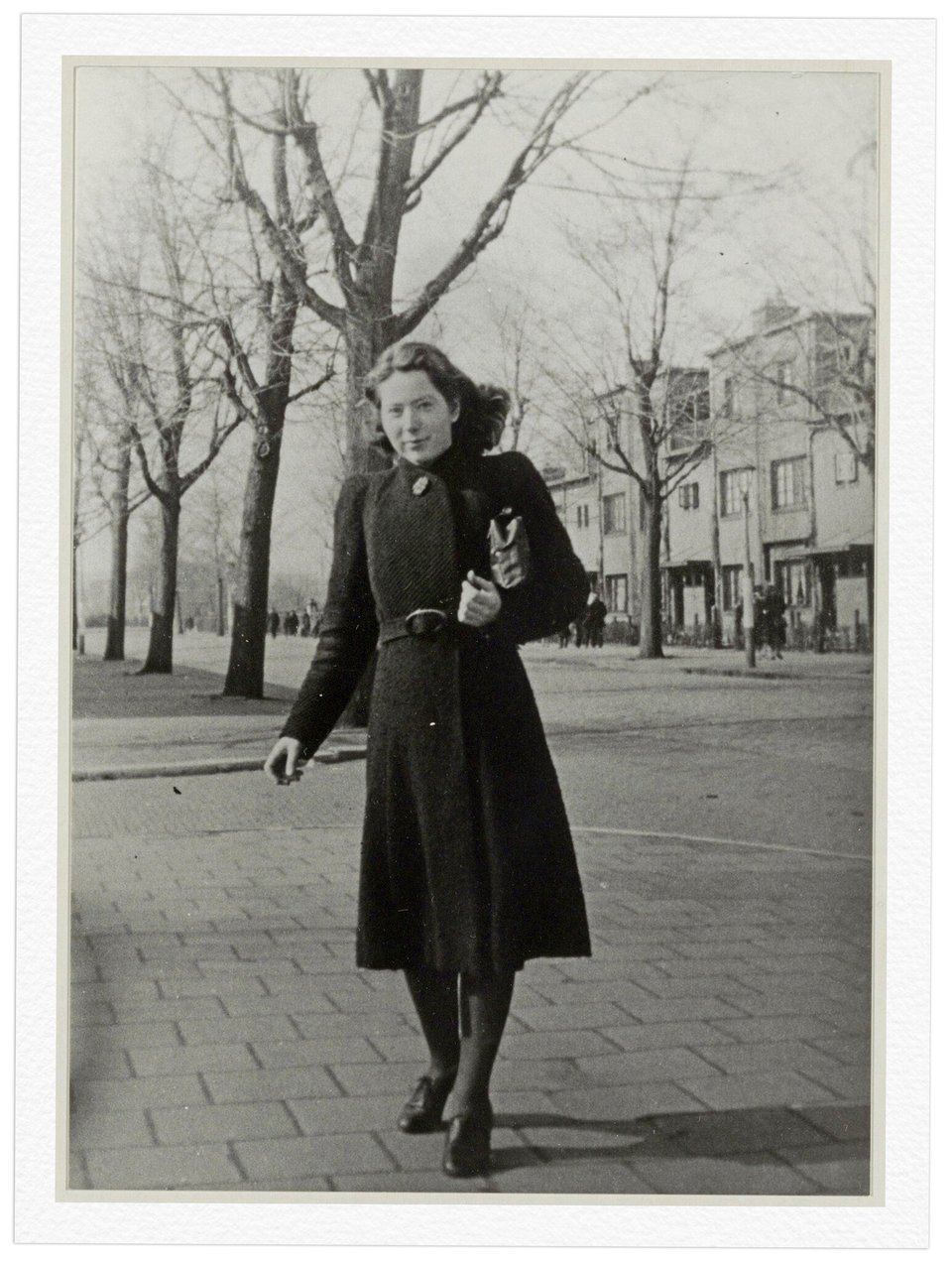Eyes Opened
How a Dutch resistance fighter and a modern surveillance contract changed how I see this moment.
Hi neighbors,
I used to think privacy was already a thing of the past. I’d gotten used to being tracked — by my phone, by advertisers, by the platforms we all rely on. It felt inevitable, and honestly, I didn’t think much about it. In fact, I was often more than eager to give away my privacy for convenience. Click “accept all.” Let the app remember me. Get through the line faster.
I used to assume I had nothing to worry about. I thought I had nothing to hide.
But over the past few months, something has shifted. The conversations in our community about the Flock surveillance cameras, the pushback, the public comments, the Council’s decision to move forward anyway, made me start asking harder questions. And they sent me looking backward too.
My family is Dutch, but I’ve never felt a particularly strong connection to that history until now. As I’ve been thinking more about the choices we’re facing as a community, and as a nation, I’ve found myself wondering what people like me did in times like these. When did they start paying attention? What made them speak up?
Last week I finished a remarkable book called Seducing and Killing Nazis, a historical account of three young Dutch women — Hannie, Truus, and Freddie — who fought in the resistance against Nazi occupation. I’d known of Hannie Schaft, “the girl with the red hair,” but not in this much depth. This week I started To Die Beautiful, a novel based on Hannie’s life, and one scene in particular stopped me cold.
When Hannie’s Eyes Opened
To Die Beautiful is written in the first person, from Hannie’s perspective. She is not Jewish, but two of her closest friends, Sonja and Philine, are. One afternoon in Amsterdam, they learn that German officers have arrived at a local hospital — not with guns, but with orders to confiscate all the patient files.
“The Germans showed up at her hospital and confiscated all the files on the patients, doctors, staff, everyone. They said they needed them to reorganize the relief efforts.”
“Files?” asked Philine. “What files?”
“Just identification forms, I think. Name, address, where you work, etc. As if the Germans need their own system to replace ours…”
Hannie tries to downplay it — “It’s a gross invasion of privacy… one I’m sure is illegal under the 1929 Geneva Conventions” — but when Philine says, “They’re singling out the Jews,” the weight of it lands.
“What?” I said. “No, they wanted all the files. Not just the Jewish ones.”
Sonja and Philine looked at me, incredulous.
It took a second; I could then feel the gulf of circumstance give way between us for the first time.
I looked straight in their faces: if the Germans ever wanted to orchestrate anything, the forms would make it simple to do so. That’s how they’d started in Germany, before the war even began. I knew that. The shame of my stupidity made it difficult to look Philine and Sonja in the eye.
This is the moment Hannie truly sees what’s happening. The shift isn’t loud or dramatic. But it’s irreversible. She realizes the Nazis weren’t just seizing land. They were seizing records. Systems. Information. The architecture of control.
It’s one of the most quietly devastating scenes in the book — not because of violence, but because of how ordinary the process is. Just files. Just data. And the trust in a system that turned against the people inside it.

What the Nazis Did with the Data — And Why It Matters Now
The files Hannie witnessed being seized weren’t fictional invention. After the German invasion of the Netherlands in 1940, officials began compiling a centralized population registry. Identity cards, known as persoonsbewijs, tracked religion, occupation, and address. Dutch civil servants created meticulous maps — “dot maps” — to mark where Jewish families lived.
These lists became deportation plans. It was all horrifyingly efficient. Bureaucracy, weaponized.
In 1943, members of the Dutch resistance bombed Amsterdam’s civil registry office in an attempt to destroy those records. They understood that the most powerful tool of oppression wasn’t the rifle. It was the file cabinet. Destroy the records, and you delay the machinery of deportation. They succeeded in burning about 15 percent of the files. It didn’t stop the Holocaust. But it made clear what they saw: the records were the real front line.
To be clear, I am not suggesting we destroy anything today. That is neither effective nor ethical in a digital age.
But that’s exactly the point. In 2025, you can’t bomb a server. You can’t burn a spreadsheet. Which means we must act before systems like these are put in place — not after.
Why This Should Set Off Alarms
Today, ICE doesn’t need a filing cabinet or a clipboard. They already have access. They just log in.
They’ve tapped into Medicaid and IRS records, despite federal protections. Here in Washington State, the Department of Licensing quietly shared personal data with ICE.
The systems we were told were for solving crimes are already being used for purposes the public never approved. And now, they’re evolving.
Flock is no longer just selling license plate readers. They’re building a full-spectrum surveillance platform. In addition to capturing plates, their systems can now scan vehicles for identifying features like bumper stickers, roof racks, and dents — creating searchable “vehicle fingerprints.” But that is just the beginning. According to leaked internal documents reported by 404 Media, Flock is also developing a tool that lets police search for people by name, physical description, or known vehicle associations. Their AI-powered platform links camera footage, gunshot detection, and even drone feeds into a central system called NOVA — designed to make searching for people or vehicles as easy as running a Google search.
There are no meaningful guardrails. Just access.
The tools are here. The infrastructure is growing. And the use cases are already sliding from “public safety” to something far more dangerous.
Choose Now, Not Later
If we wait until these systems are fully normalized, it will be too late.
The lesson from 1941 is not “someday it might get bad.” The lesson is that it always seems too small to matter — until it’s already been built.
That doesn’t mean we need to panic. It means we need to stay awake.
Speak up. Show up. Ask who has access. Question what “public safety” really means.
And most of all, don’t assume these tools will always be used by the people who installed them.
Because history tells us they won’t.
History Is Written by the 5 Percent
It’s often said that during the Nazi occupation of the Netherlands, about 5 percent of the population openly collaborated with the regime. But another 5 percent joined the resistance — sheltering people, forging documents, sabotaging infrastructure, and, like Hannie, refusing to look away.
The other 90 percent? They stayed silent. They tried to live their lives. And in doing so, they allowed systems of oppression to spread.
We don’t get to choose what moment we live in. But we do get to choose whether we show up.
I want to be clear: the comparisons I’m drawing here are not about the City of Mountlake Terrace. Many of us who have raised concerns about the Flock cameras have also expressed continued trust in our local city and police staff. While this decision has sparked valid questions and concerns, I believe those conversations are happening in good faith. The deeper threat we’re facing comes from the national stage, where efforts to expand federal surveillance and consolidate power are moving quickly and openly. That’s where our greatest vigilance needs to be focused.
Why Local Resistance Matters
Mountlake Terrace may seem like a small town in a big world, but what we normalize here matters. It sets precedent. It builds — or erodes — trust. And it either strengthens or weakens the idea that people still have power over the systems being built around them.
If you’ve spoken up at a meeting, sent a comment, read this far, or even just wondered, “Should I be more concerned about this?” — you’re already part of the resistance.
No one person has to do everything. But all of us can do something.
Let’s not wait until a list has our name on it to ask what it’s for.
Let’s ask now. Let’s act now.
Until next time,
Dustin
